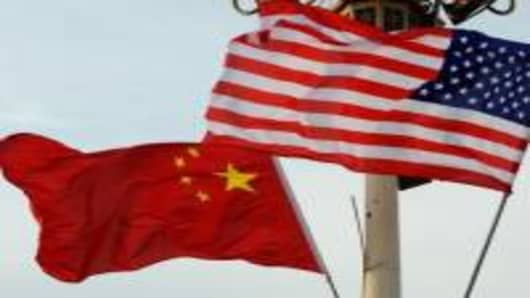The rare congruity of the political calendars in the United States and China, with both countries choosing leaders this month, is about to produce an equally rare replacement of most of each side's senior trade negotiators, with unpredictable results for bilateral economic relations.
One of the few surprises in the carefully scripted Communist Party Congress that ended on Wednesday was that Commerce Minister Chen Deming lost his seat when delegates chose the members of the party's Central Committeefor the next five years.
Under party rules, that means he will have to step down as minister at the National People's Congress in March. His demotion also meant that he was ineligible to join the Politburo last Thursday and become one of the four vice prime ministers, as some analysts had expected.
Some Chinese analysts say that the direction of the country's international economic policy is clear and consistent, and that changing the individuals responsible for carrying out that policy will not make much difference.
"The fundamental policy on international trade is adherence to opening and reform," said He Weiwen, the co-director of the China-U.S./E.U. Study Center at the China Association of International Trade in Beijing. "It will certainly continue and develop to a new height, including China's trade policy on the U.S."
(Read More: Window Is Open for US, China to 'Refresh' Ties: Huntsman)
But the significance of Mr. Chen's departure from the Central Committee, which has 205 members and 171 alternates, has divided Western experts about what it means for China's policies. He has a reputation as a gentlemanly figure who chooses his words with care and has not indulged in outspoken denunciations of the West during trade disputes, even as the tone of social media in China has become increasingly nationalistic on economic policy.
Mr. Chen's failure to win broad support from the party delegates "does not bode well for future trade relations, and shows that China is pushed by populism," warned one Western expert who insisted on anonymity because of China's sensitivity about discussions of personnel changes.
But others cautioned that Mr. Chen had been quick to retaliate for American and European trade actions instead of seeking to negotiate solutions, so his presence at the Commerce Ministry may not have acted as much of a brake on China's willingness to confront its trading partners.
Most recently, Mr. Chen had started a series of trade actions against imports of the main raw material for solar panels, polysilicon, to retaliate for the stiff American tariffs on Chinese solar panels and European consideration of similar tariffs.
Mr. Chen had been criticized within China's bureaucracy for falling short on all three of China's top trade priorities with the European Union: ending the European embargo on arms exports to China, winning "market economy" status from the European Union to discourage antidumping cases against Chinese exports, and discouraging European officials against starting a trade case over solar panels.
(Read More: Fast-Food: Key to Good US-China Relations?)
According to the state news media, there were only 9.3 percent more candidates for the Central Committee than seats available.
The Chinese government did not release the names of the losing candidates, and it is possible that Mr. Chen's name was not on the final ballot; he is 63 and approaching retirement. But several people said they were under the impression that Mr. Chen had failed to win.
There are two leading candidates to become the next commerce minister, a job with responsibilities that roughly combine those held separately in the United States by the trade representative and the under secretary of commerce for international trade. One of the contenders is Gao Hucheng, Mr. Chen's deputy at the Commerce Ministry, and the other is Huang Xingguo, the mayor of Tianjin.
Little is known about their views on trade policy.
Mr. Gao has been seen for years as a successor to Mr. Chen, but Mr. Huang may benefit from the recent promotion of his boss, Zhang Gaoli, who holds the top job in Tianjin as party secretary. Mr. Zhang became one of the seven members of the ruling Politburo Standing Committee on Thursday and is expected to become the executive vice premier overseeing day-to-day economic policy at the National People's Congress in March.
Two other prominent Chinese officials involved in bilateral relations are leaving their posts. Wang Qishan, the vice prime minister who has led the Chinese economic policy negotiating teams for nearly five years, became a member of the Politburo Standing Committee but was named to lead the Central Commission for Discipline Inspection, which means that he will focus on corruption investigations.
Thou Xiaochuan, the governor of China's Central Bank for the past decade, is retiring and was not re-elected to the Central Committee.
In the United States, Secretary of State Hillary Rodham Clinton, Treasury Secretary Timothy F. Geithner and Ron Kirk, the trade representative, are all expected to leave at the end of President Obama's first term.
This article has been revised to reflect the following correction:
Correction: November 18, 2012
An earlier version of the summary with this article misspelled the name of China's commerce minister. It is Chen Deming, not Demin


